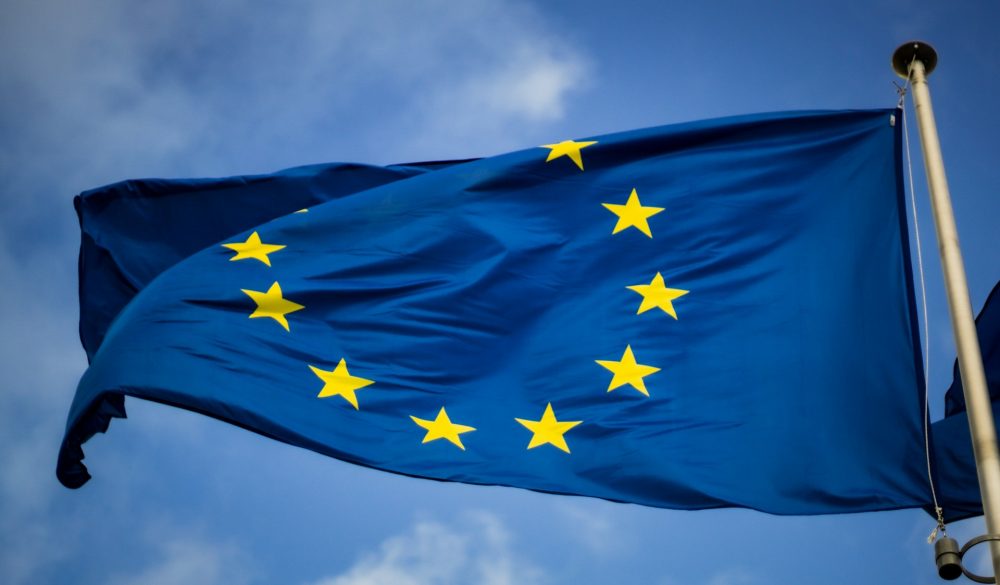Cannabis
Cannapol and the Global Shift: From Failed Drug Prohibition to Responsible Regulation
Global drug policy is shifting from punitive prohibition to public health and human rights. The UN confirms the “war on drugs” failed, fueling crime, stigma, and inequality. Over 500 million people live where cannabis is legal. The EU’s Cannapol project guides regulation, while Poland resists reform, ignoring evidence and international trends.

There is a growing global trend toward decriminalization and the creation of legal, regulated markets, especially for cannabis. Over 500 million people worldwide now live in jurisdictions where adults can legally purchase cannabis. The European Union is also responding to these changes. Through a new project called Cannapol, Brussels is beginning to create a framework to help member states develop well-thought-out and safe regulations.
It’s time to understand why the old policy failed, how Europe is responding, and what Poland’s official position is on all this.
The Failure of Prohibition: What Does the Latest UN Report Say?
The latest report of the United Nations Development Programme (UNDP) from 2025 leaves no doubt: policies based on punishment are ineffective and do more harm than good. Instead of reducing the supply of drugs, prohibition handed control of a market worth between $600 and $1,000 billion annually to organized crime groups (OCGs)..
The negative effects of the “war on drugs,” documented in the report, are devastating and multifaceted:
Public Health: Escalating the Crisis Instead of Resolving It. Criminalization and the stigma that comes with it create a barrier of fear that prevents those in need from reaching out for help. Over the past decade, the number of people using drugs has increased by 28%, reaching 316 million by 2023 globally.
Human Rights: “A War on People,” Not Drugs. UN experts have stated bluntly that “the war on drugs can largely be understood as a war on people .” Its victims are most often those already marginalized—ethnic minorities, indigenous people, and people living in poverty.
Economy and Development: Fueling Corruption and Conflict. The illegal drug market is a powerful force destabilizing entire regions. The violence and corruption that are inherent to it hinder economic development and deter legitimate investment.
A New Paradigm: From Penalties to Just Market Transformation
In response to these failures, there has been a shift worldwide toward policies based on public health and human rights. More and more countries are decriminalizing personal drug possession and implementing harm reduction programs.
A new, increasingly important concept is the “just transition.” The idea is for legal markets to actively repair the social and economic damage caused by decades of prohibition. Some US states have implemented so-called Equity Programs, which include making it easier for people from disadvantaged communities to obtain licenses and allocating a portion of tax revenues to investments in these areas.
Cannapol: The EU’s Blueprint for Responsible Cannabis Regulation
Europe isn’t lagging behind. Seeing that more member states, like Germany, Malta, the Czech Republic, and Luxembourg, are legalizing recreational cannabis, the European Union has decided to act. The EU Drugs Agency (EUDA) has launched a three-year project Cannapol.
The goal of Cannapol is to create a dedicated “toolkit” to help countries develop safe, evidence-based policies regarding recreational cannabis use. The Cannapol project does not address medical cannabis, and its goal is not to impose solutions but to provide data for informed decision-making.
Poland Against the Tide? Government Versus International Trends
While the world and Europe are moving toward pragmatic reforms, the Polish government recently officially rejected the proposal to decriminalize cannabis possession for personal use . An analysis of the Ministry of Health’s response shows that the government’s arguments contradict the conclusions of the UN report and the experiences of other countries.
Here are the government’s main theses and their confrontation with the facts:
Government argument: “International law (UN Conventions) prevents decriminalization . “
Facts: This is untrue. Countries like Malta, Spain, the Czech Republic, and Germany operate within the EU and have found ways to implement reforms. The UNDP report also highlights that UN conventions offer some flexibility, allowing for the use of “alternatives to punishment.” Furthermore, UN human rights agencies (OHCHR) are now calling for market regulation to better protect human rights, which are also part of international law.
Government argument: “Cannabis is a serious threat to public health.”
Facts: The UN report unequivocally states that prohibition and criminalization pose the greatest threat to public health. They lead to a dangerous, uncontrolled black market and discourage people from seeking help. Meanwhile, legal and far more harmful substances, such as alcohol and tobacco, are widely available.
Government argument: “Decriminalization will increase consumption, especially among minors.”
Facts: The experiences of countries that have reformed their laws do not support this thesis. Moreover, as the UNDP report emphasizes, it is the legal, regulated market—as opposed to the black market—that provides the state with real tools to control access for minors through age verification at points of sale.
Government argument: “The current law (Article 62a) is sufficient.”
Facts: The prosecutor’s option to dismiss a case is a discretionary and unpredictable solution. It doesn’t address the fundamental problem of fear of law enforcement. This fear, as the UN warns, is a major barrier to accessing treatment and harm reduction programs, worsening the health situation across society.
What Future Awaits Poland? Conclusions for National Policy
The shift in global drug policy is already a fact. Today, the question is not whether to regulate markets, but how to do it wisely and responsibly. The arguments put forward by the Polish government not only contradict the latest scientific data and reports from international institutions, but also ignore the experiences of our European partners.
The EU’s Cannapol project could become a valuable guide for all of Europe. It’s a unique opportunity for Poland to abandon outdated and harmful policies, learn from the mistakes and successes of others, and then design a model that prioritizes public health and social justice. It’s time for a wise and courageous debate based on facts.
__
(Featured image by Christian Lue via Unsplash)
DISCLAIMER: This article was written by a third party contributor and does not reflect the opinion of Born2Invest, its management, staff or its associates. Please review our disclaimer for more information.
This article may include forward-looking statements. These forward-looking statements generally are identified by the words “believe,” “project,” “estimate,” “become,” “plan,” “will,” and similar expressions. These forward-looking statements involve known and unknown risks as well as uncertainties, including those discussed in the following cautionary statements and elsewhere in this article and on this site. Although the Company may believe that its expectations are based on reasonable assumptions, the actual results that the Company may achieve may differ materially from any forward-looking statements, which reflect the opinions of the management of the Company only as of the date hereof. Additionally, please make sure to read these important disclosures.
First published in FaktyKonopne. A third-party contributor translated and adapted the article from the original. In case of discrepancy, the original will prevail.
Although we made reasonable efforts to provide accurate translations, some parts may be incorrect. Born2Invest assumes no responsibility for errors, omissions or ambiguities in the translations provided on this website. Any person or entity relying on translated content does so at their own risk. Born2Invest is not responsible for losses caused by such reliance on the accuracy or reliability of translated information. If you wish to report an error or inaccuracy in the translation, we encourage you to contact us.

-

 Markets5 days ago
Markets5 days agoWeather-Driven Supply Outlook Lifts Coffee Markets in Brazil and Vietnam
-

 Markets2 weeks ago
Markets2 weeks agoCotton Market Weakens Amid Demand Concerns and Bearish Trends
-

 Business3 days ago
Business3 days agoTopRanked.io Weekly Affiliate Digest: What’s Hot in Affiliate Marketing [Best Technology Affiliate Programs]
-

 Fintech1 week ago
Fintech1 week agoFintech Alliances and AI Expand Small-Business Lending Worldwide
























